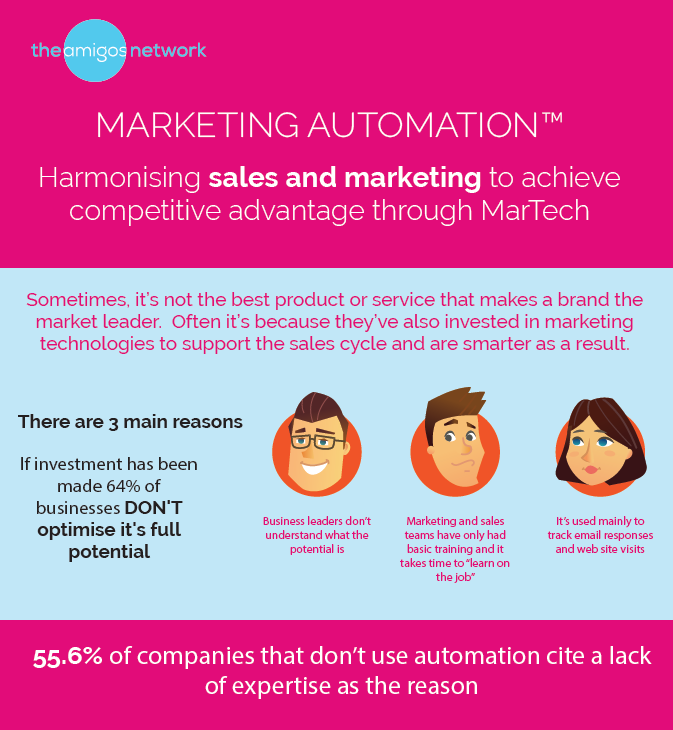Monday, November 04, 2024
Data management is the backbone of any marketing strategy, yet it’s often seen as one of the least attractive areas to work in.
While other fields like brand strategy, content creation, and social media draw a large share of attention, data management usually lingers in the background. However, in a world increasingly driven by insights, managing data is one of the most critical, yet unsung heroes, in marketing.
Data has been called the “new oil,” a resource more valuable than any other in today’s digital economy. Yet, despite its potential, data management remains one of the most overlooked aspects of business strategy. Companies may invest heavily in advanced technology, marketing, and sales, but without accurate, well-maintained, and compliant data, even the most sophisticated systems can fall short.
Whilst the CTO will be responsible for ensuring data protection and compliance, accuracy and ongoing enrichment are responsibilities usually lie elsewhere in the business. But who really wants to own it?
Why data is your most valuable asset
Accurate and accessible data powers almost every aspect of modern business: Customer insights, marketing strategies, product development, sales targeting, and much more. The quality of your data directly impacts decision-making and, ultimately, your bottom line. However, many organisations still don’t prioritise data management, resulting in significant losses of time, money, and potential growth.
Recent studies highlight the gap between the importance of data and how well it’s managed:
- Accuracy: According to Gartner, poor data quality costs organisations an average of $12.9 million per year. And yet, it’s estimated that 33% of organisations lack the foundational data needed to support customer insights.
- Maintenance: Experian reports that 55% of businesses say poor data quality impacts their ability to engage customers, with outdated and duplicate records causing confusion and missed opportunities. Despite this, only 20% of businesses have a consistent data management strategy in place.
- Compliance: With data regulations like GDPR and CCPA, compliance is more critical than ever. IBM found that non-compliance can lead to fines averaging 2-4% of a company's annual revenue, yet up to 50% of businesses fail to regularly audit their data compliance practices.
These statistics make it clear: data management is essential, and when overlooked, it becomes a costly liability.
The hidden costs of poor data management
Poor data quality and management affect businesses in various ways, often in ways that go unnoticed:
- Wasted marketing spend: When targeting is inaccurate, marketing budgets are wasted on campaigns that miss their mark. According to a study by Forrester, businesses waste about 21 cents of every dollar on poor data. The result? Lower conversion rates, missed revenue opportunities, and a weakened brand
reputation. - Sales inefficiency: Sales teams depend on accurate data to engage high-quality leads. When data is outdated or inaccurate, sales teams waste time on leads that don’t align with their ideal customer profile. This inefficiency drags down performance and lengthens the sales cycle, directly impacting revenue.
- Operational inefficiencies: Poor data management leads to inefficiencies across departments, from customer support to finance. For instance, duplicate or inaccurate records can result in longer resolution times, higher costs, and an overall decline in productivity.
- Non-compliance risks: With rising data protection regulations, non-compliance isn’t an option. Mishandling data could result in hefty fines and irreparable damage to a company’s reputation, which is often far more costly than the initial investment in proper data management.
The value of accurate, compliant data
Accurate and well-maintained data doesn’t just reduce costs; it actively drives growth:
- Better decision-making: Accurate data allows businesses to make informed decisions based on reliable insights. A recent study found that data-driven organisations are 23 times more likely to acquire customers, six times more likely to retain customers, and 19 times more likely to be profitable.
- Improved customer relationships: Clean, updated data enables personalised customer interactions. According to Accenture, 91% of consumers are more likely to shop with brands that recognise, remember, and provide relevant offers and recommendations.
- Enhanced compliance and trust: Proper data management ensures compliance with regulations, reducing legal risks and building trust with customers. In fact, a Deloitte study found that companies with strong data protection policies experience greater customer loyalty and are more likely to attract new business.
Building a strong data management strategy
To fully unlock the value of your data, prioritise data management as a core part of your business strategy. Here’s how:
- Start with clean data: Ensure your data is accurate from the beginning. and standardise records to include all the fields you wish to populate. These can be enriched as part of the onward process as long as the framework is in place to support the needs of the business.
- Implement data governance: Establish clear policies around data collection, storage, access, and usage. A robust data governance framework ensures consistency, accuracy, and compliance across departments.
- Maintain data compliance: With evolving data privacy laws, staying compliant is crucial. Implement systems to monitor and enforce compliance with regulations like GDPR and CCPA.
- Automate data maintenance: Automation can help reduce the burden of data upkeep. Consider tools that monitor data quality in real time and flag or correct issues automatically.
- Foster a data-driven culture: Empower teams with data access and insights. Encourage employees to view data as a valuable asset that supports smarter decision-making and drives growth.
Essential data housekeeping practices
Data management may not be the most appealing role, but it’s critical - and it starts with proper data housekeeping. Here are some best practices:
- Regular data cleansing
- Standardise data: Ensure that entries like phone numbers, addresses, and names follow consistent formatting to avoid errors and enable seamless data integration across systems.
- Enrich data: Add information gathered through the engagement process to individual records. This is useful for onward marketing and may include phone numbers, areas of interest, hobbies and interests and so on.
- Regularly audit and cleanse data to remove duplicates, correct inaccuracies, and standardise records.
- Remove duplicates: Duplicate records waste resources and confuse targeting efforts. Regular deduplication should be part of a monthly routine.
- Implement data validation on entry
- Validate in real-time: Use tools to validate data at the point of entry to catch errors before they enter the system. This reduces the need for extensive cleaning down the line and improves data accuracy.
- Verify important data points: Important fields like email, phone number, and company information should be verified and kept up-to-date to ensure contact accuracy.
- Maintain a data governance framework
- Define roles and responsibilities: Make sure team members know who is responsible for data entry, maintenance, and compliance.
- Enforce data entry standards: Set rules around which fields must be filled, how they should be filled, and who should be able to access or update information. This structure ensures data consistency and accuracy over time.
- Automate routine data checks
- Automate data quality monitoring: Use data quality tools to monitor records for incomplete, inconsistent, or outdated information, flagging it for review.
- Schedule regular audits: Conduct quarterly audits of data quality and compliance to catch any emerging issues and make necessary corrections.
- Ensure compliance and security
- Stay up-to-date with regulations: Ensure that data handling complies with regulations like GDPR and CCPA, which requires consent management and data deletion practices.
- Encrypt and secure data: Protect customer information through encryption and security protocols, preventing data breaches that damage trust and reputation.
Conclusion: Treat your data like the asset it is
As data fuels every aspect of business, ignoring its management is no longer an option. Accurate, well-maintained data is your foundation for success - enabling effective marketing, efficient sales, streamlined operations, and customer loyalty.
By investing in a strong data management strategy, companies not only protect themselves from the costs of poor data but also gain a competitive advantage. Treating data like the asset it truly is will help you harness its full potential, enabling smarter decisions, driving growth, and creating sustainable value.
To learn more about how marketmaking embraces Social Selling as part of a seamless sales and marketing growth strategy, get in touch.
































